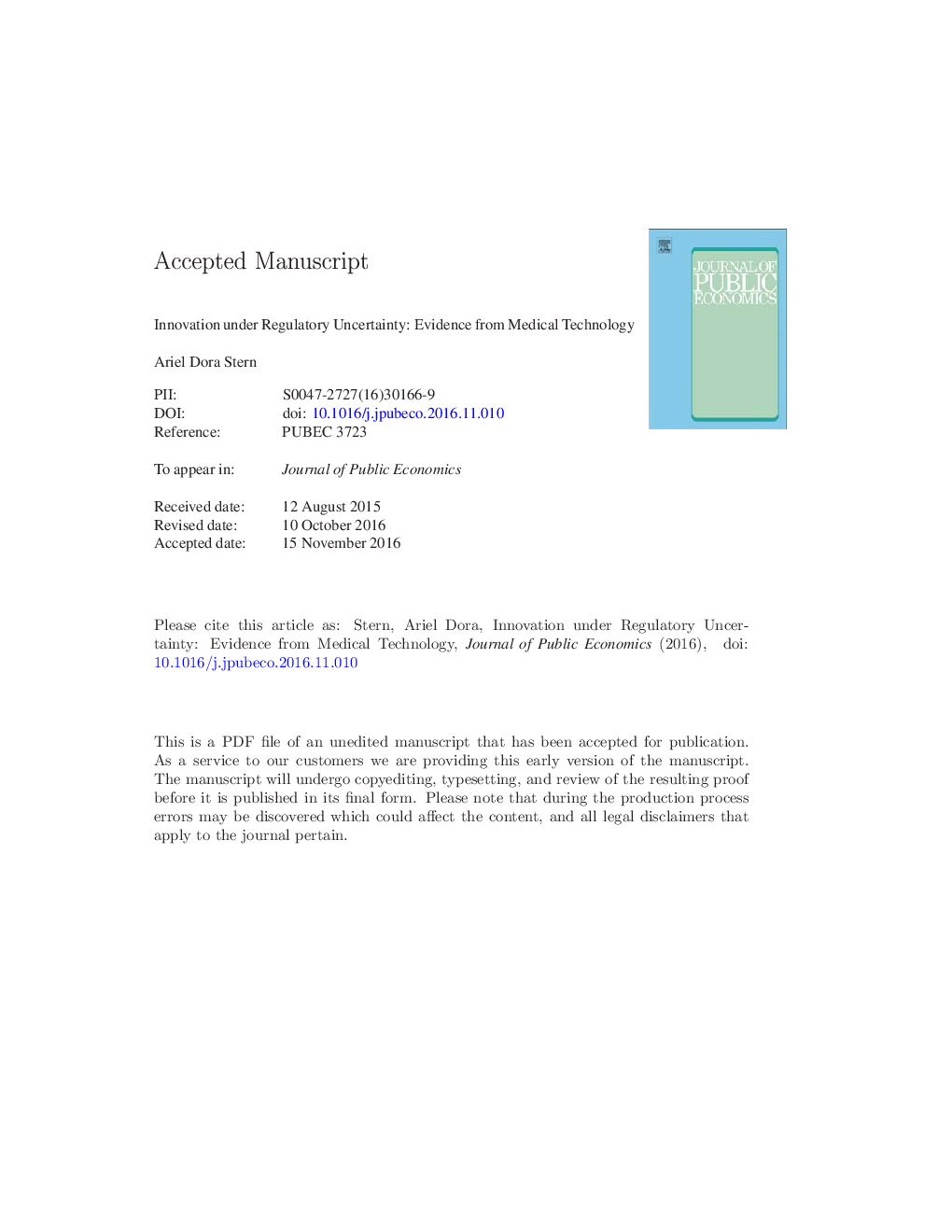| Article ID | Journal | Published Year | Pages | File Type |
|---|---|---|---|---|
| 5101834 | Journal of Public Economics | 2017 | 65 Pages |
Abstract
This paper explores how the regulatory approval process affects innovation incentives in medical technologies. Prior studies have found early mover regulatory advantages for drugs. I find the opposite for medical devices, where pioneer entrants spend 34% (7.2months) longer than follow-on entrants in regulatory approval. Back-of-the-envelope calculations suggest that the cost of a delay of this length is upwards of 7% of the total cost of bringing a new high-risk device to market. Considering potential explanations, I find that approval times are largely unrelated to technological novelty, but are meaningfully reduced by the publication of objective regulatory guidelines. Finally, I consider how the regulatory process affects small firms' market entry patterns and find that small firms are less likely to be pioneers in new device markets, a fact consistent with relatively higher costs of doing so for more financially constrained firms.
Related Topics
Social Sciences and Humanities
Economics, Econometrics and Finance
Economics and Econometrics
Authors
Ariel Dora Stern,
